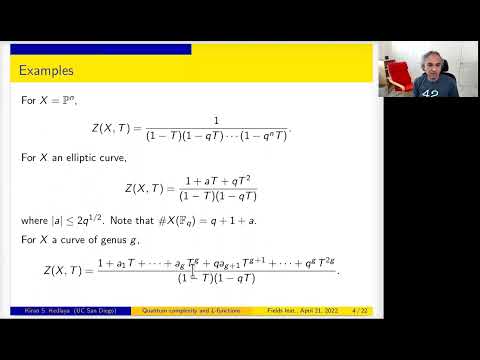Description:
Explore the intersection of quantum complexity theory and L-functions in this 55-minute lecture by Kiran Kedlaya from the University of California, San Diego. Delve into topics such as the Hasse-Weil zeta function, classical and quantum complexity results, cohomology, modular forms, and the Mordell-Weil theorem. Examine the role of crystalline and étale cohomology in quantum algorithms, and investigate Fourier coefficients of modular forms of various weights. Consider the challenges and potential solutions in generating compact representations, including the use of Heegner points. Gain insights into cutting-edge research connecting number theory, algebraic geometry, and quantum computing.

Quantum Complexity and L-functions
Add to list
#Mathematics
#Number Theory
#Modular Forms
#L-functions
#Geometry
#Topology
#Algebraic Topology
#Cohomology